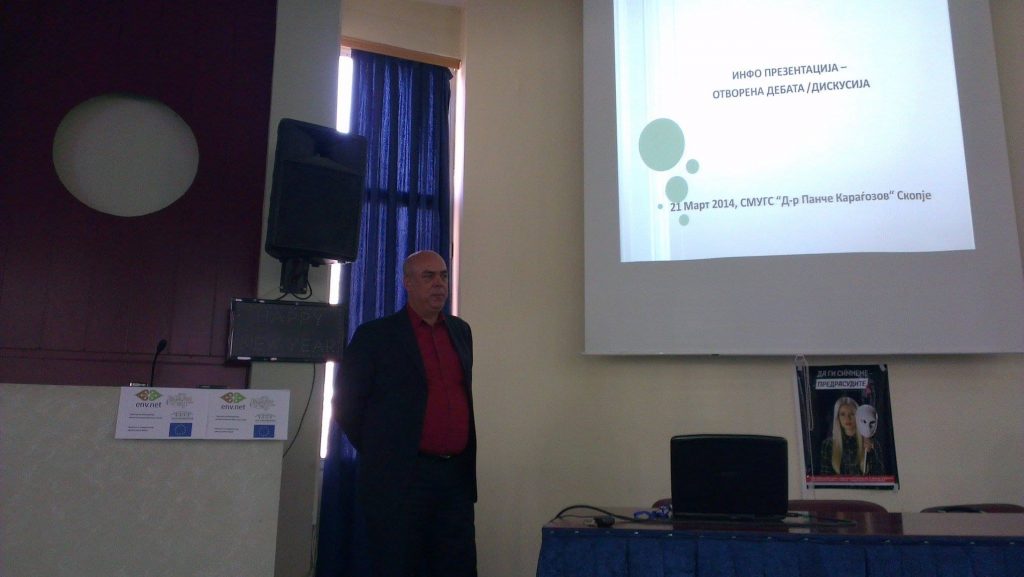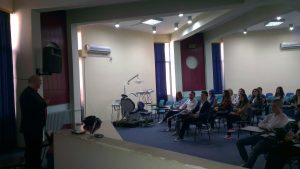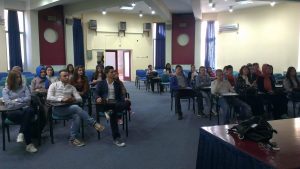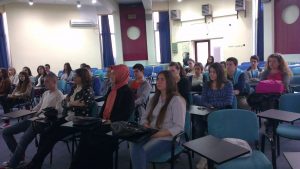The ENV.net project team from Macedonia organised, at SMUGS “Dr Pance Karagjozov” in Skopje, a presentation and discussion with students from the third and fourth year of the secondary medical school from Skopje, with aim to initiate a debate regarding the domestic legal provisions compared to the European directives and eco – standards that apply to certain types of waste (batteries, accumulators, electronic devices, etc., with special emphasis on medical waste that occurs in the work of medical staff in all medical facilities).
The initiative came from several professors from the secondary medical school “Dr. Pance Karagjozov” from Skopje, with who we were in communication in the past few months, discussing possibilities for active involvement of young people on issues pertaining environmental protection. Our aim was to motivate the students to take their own initiatives related to environmental issues and by that to demonstrate their maturity and readiness for implementation of projects in this area.
The first meeting was realised on 13th March 2014 in the school amphitheatre, where we presented the objectives of the ENV.net project and obligations of the Republic of Macedonia in the process of accession to the EU in terms of addressing issues relating to the protection of the environment.
In the opening statement, we emphasised that problem that our country has in terms of tackling different types of waste. Part of the presentation was dedicated to a specific hazardous type of waste (such as used batteries, rechargeable batteries, and electrical devices) which in turn is closely related with the medical profession and the equipment in hospitals. All that technical equipment and devices used in the hospitals contain batteries, are themselves in the category of electronic waste.
The third part of the presentation was about the Law on medical waste management, and our attitude, i.e. the attitude of the state towards this kind of waste, which as such is not subject to possible recycling, and is one of the most hazardous wastes both for humans and animals. Needles to say, medical facilities are the major producers of this waste.
We highlighted some of the key provisions of the positive laws and regulations, as well as examples and data from previous local initiatives undertaken to deal with hazardous medical waste.
At the end the students showed initiative to join our activities within this project (ENV.net), and willingness to engage in developing projects related to topics close to them and their medical profession (for example, research on the quantities of medical waste, how competent authorities (both local and national) deal with this problem, about storage and disposal of medical waste, how citizens handle medical waste, etc.)
All participants (32 students and two professors, Mrs. Zumrete Jakupi and Mrs. Valentina Damchevska) expressed their willingness for cooperation and active involvement of the school in joint initiatives and activities in future.




